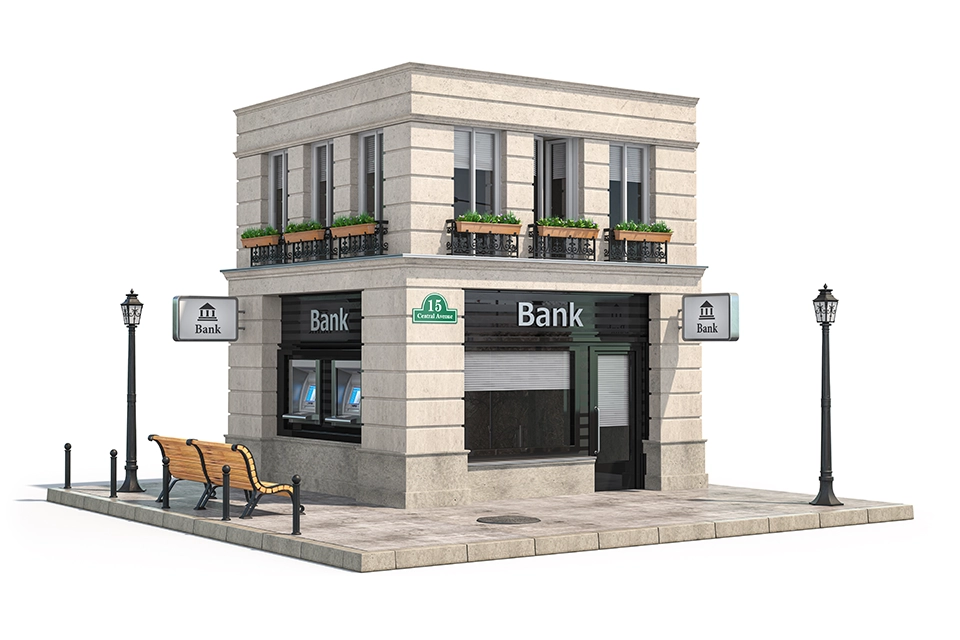What Should Mid-Market Companies Do To Protect Deposits During the Current Bank Liquidity Crunch?

Breaking Up Is Hard To Do
In the wake of the collapse of Silicon Valley Bank and Signature Bank, every chief executive officer of a mid-market privately held company had the same two questions this morning: what banks hold our deposits and to what extent are our deposits guaranteed or insured?

Often, mid-market companies pursue strategic business relationships with small and regional lenders. These lenders usually have prominent roles in the community where the company is located. Typically, these regional lenders can compete with larger national lenders on rate and product availability, while providing more flexibility. As a result, companies will initiate and maintain banking relationships with regional lenders for community and political reasons.
However, small regional lenders often do not have the same balance sheet strength as the so called too-big-to-fail national lenders. Although the federal government bailed-out account holders at Silicon Valley Bank and Signature Bank by insuring all deposits on account there, a question remains whether the federal government will provide the same financial support to deposit holders at other regional banks.
Therefore, what should mid-market companies that have deposit accounts with regional lenders do right now to ensure liquidity and safeguard investor equity?
Review Loan Agreements with Help of Counsel
While some mid-market businesses pursue banking relationships with regional banks strictly for cash-management purposes, many entities develop relationships with regional banks through commercial lending.

Most lenders require, as a condition of providing a loan, that the borrower establish certain deposit accounts with the lending institution. These accounts can take on a variety of forms, and typically maintain a balance well above the Federal Deposit Insurance Corporation (“FDIC”) maximum insured amount $250,000.
These deposit accounts take on different forms and include traditional accounts such as, checking (demand deposit accounts), money market, and certificates of deposit (the “Traditional Accounts”) but they also can include complex account agreements such as Blocked Account Control Agreements (“BACA”) and Deposit Account Control Agreements (“DACA”).
BACA’s are partially or completely controlled borrower deposit accounts controlled by the lender as agreed to by the borrower in a loan agreement. Although the cash in a BACA is owned by the borrower, and those funds earn interest, the lender controls disbursement, typically subject to provisions that provide borrower access to funds prior to an event of default
DACA’s are agreements in which a borrower, a secured party, and a bank that maintains the deposit account have agreed that the bank will comply with instructions originated by the secured party directing disbursement of the funds in the deposit account without further consent by the borrower. Furthermore, there are various types of DACA’s such as a Springing DACA that gives full account control to the borrower unless there is an event of default and a “Hard DACA”, which is an account in lender’s control for the life of the loan agreement, with standing disbursement instructions approved in advance to disburse funds to an unblocked account weekly or monthly unless an event of default occurs.
Whether you have Traditional Accounts, BACA, DACA or some combination therein with your lender, if any account has a balance of more than $250,000, your funds could be at risk.
Discuss Options and Strategies with Banks
After working with your counsel to thoroughly review your current loan agreements and cash management policies, it is imperative that all mid-market businesses take appropriate steps to secure their funds.
Option 1: Negotiate with your lender to open additional accounts under separate but affiliated entities so that each account contains the FDIC maximum amount. This option preserves your relationship with the regional bank, while still securing your funds. An alternative could also be to open different account types under different ownership categories, subject to FDIC regulations.
Option 2: If Option 1 is not feasible, work with your lender to determine whether your lender has deposit syndication relationships with other banks, such as an insured cash sweep program. In this option, your primary lender will work with other banks to transfer funds and open additional deposit accounts so that each account at each bank contains the FDIC maximum amount, all while ensuring each bank in the syndication provides the same interest rate on those funds. This option also preserves your relationship with your lender.
Option 3: If you are worried about cash availability, even if all your accounts are at the FDIC limit, you must consider removing your funds from the regional bank. This option is the nuclear option as it would damage your relationship with the regional bank, greatly limit your ability to enter into future transactions with them, and potentially require lengthy negotiations with lender counsel to unwind provisions in the loan agreement.
Fiduciary Relationships are Paramount
Whether your entity is structured as a limited liability company, a corporation, or a partnership, you owe a fiduciary duty to your investors. Your fiduciary duty to safeguard investor capital trumps your business and political relationships with your banking partners.
Developing and maintaining deposit accounts and banking relationships with regional banks have certain advantages. However, during this time of unprecedent market fluctuation driven by an inflation fighting monetary policy, mid-market privately held businesses must not be afraid to break up with their regional banking partners, even though, as Neil Sedaka famously sang, it’s hard to do.

ABOUT THE AUTHOR
Nicholas T. Terzulli is Senior Counsel practicing in the Commercial Banking & Finance Law, Real Estate Law, Corporate & Securities Law, and Government Relations and serves as Co-Chair of the Economic Development & Tax Incentives law practice in the firm’s New York City office.
Nick practices law at the nexus of business and government, providing legal, policy, regulatory and strategic guidance to clients on a range of corporate, real estate, economic development, health care, and cannabis-related issues. In his law practice, Nick advises and counsels a wide variety of privately held small and midsize businesses, entrepreneurs, real estate developers, and nonprofit organizations.

